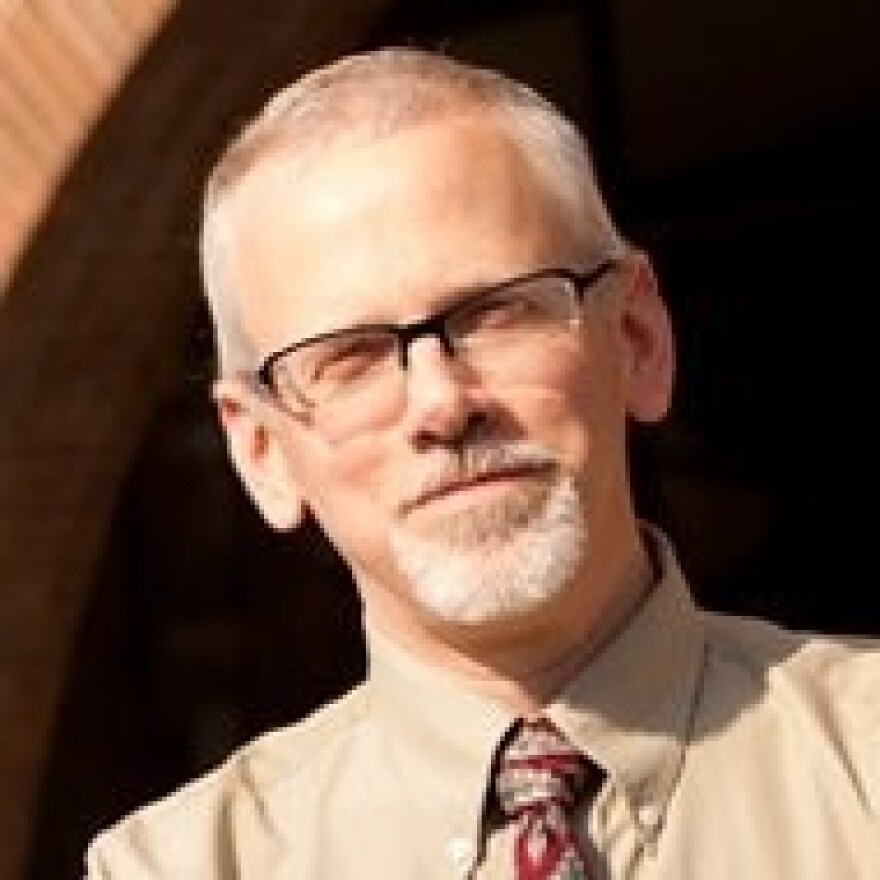Schools are putting more emphasis on STEM education, but that doesn't mean they're leaving the liberal arts or interpersonal skills behind.
STEM stands for Science, Technology, Engineering, and Mathematics, and educators at all levels are encouraging students to study these subjects. Much of this has to do with the economic growth of Silicon Valley and the higher salaries that jobs in the tech sector can provide. Exposing students to these more advanced subjects can start as early as elementary and middle school.

Becky Griffith is an instructor at Northern Illinois University's digital convergence lab. She runs a video game coding camp for elementary and middle school girls.
"They get to draw their characters, kind of create out storyboard, thinking critically that way as well as coding and making their game run," she said.
The campers use an engine called GameMaker to translate their ideas into software. Amelia, one of the participants, describes the art she's creating for her game.
"Basically, you're a squid trying to get through a maze in the undersea and the enemy is an anglerfish," she said.

The camp draws on many different skills, such as design, art, and coding. It also introduces Amelia and others to concepts like revising code.
"There's always stuff you gotta work out and other things that might go wrong," she said.
Activities like this camp show how different elements interact, and how to apply different areas of knowledge. But now teachers are also emphasizing skills that one would regularly use in a professional setting.
In the coding camp, for example, group work is a common sight. It also extends into the school year. Dr. Heather Psaltis is the Special Programs Director at Rockford Public Schools. Her purview includes the system's STEAM Academy, with the A standing for "arts."
"It's all very collaborative, so working with others, having to compromise and collaborate -- having to communicate what you really want and really need in order to get the job done and deliver what your initial idea is -- those are all the soft skills that start, I think, with a STEAM focus," she said. "That's the lens."
That is emphasized even more in higher education courses. Judson Curry is the Dean for Arts, Communication, and Social Sciences at Kishwaukee College. He says employers want career candidates to have a strong set of these "soft" skills.

"The ability to communicate well in spoken language or written language," he said. "The ability to work collaboratively in a team. The ability to think critically and to analyze problems. Knowing how to research, how to find information, how to examine and assess the information, and know what's good information."
Many of these skills can come from a standard liberal arts curriculum. But Curry says students of STEM can also expand their horizons in unexpected ways. He gives the example of Steve Jobs taking a college calligraphy course.
"Understanding print faces and type fonts, and the importance of visuals in communication," Curry said. "That went right into his development of the graphical user interface that Apple became famous for."
Educators want students to develop the critical thinking and knowledgebase that comes from a liberal arts education. They also hope to encourage the kinds of "Steve Jobs moments" that can come from studying outside one's major.
Dr. Judy Ledgerwood is Acting Dean of Northern Illinois University's College of Liberal Arts and Sciences. She says one way to encourage this study is by requiring a certain amount of liberal arts classes to graduate. But this can be less effective if students already took advanced placement college courses in high school.
"A certain number of students would come in and, in their gen ed classes they would say, 'I like that history class. Now I'm going to major in history,' or, 'I like that anthropology class. Now I’m going to major in Anthropology.' Because they've taken that AP class, they don't."
There are ways to keep students in their major while still exposing them to the liberal arts. Ledgerwood says one example is minors and certificates.
"You're doing a STEM field, but you're going to add a certificate in writing. Mixing those things up, I think, makes you a more balanced person moving forward," she said.
Another option is multidisciplinary subjects. For example, NIU has an environmental science program where students can take courses that look at more specific subfields, such as geology or public policy.
Regardless of how STEM students are led to liberal arts courses, Curry of Kishwaukee College says if it's a subject they enjoy, the students will expand their studies.
"Once they taste it, they realize that these liberal arts areas -- the arts, the sciences, the social sciences, the humanities -- they're not broccoli. They're ice cream, and they're delicious, and they just want more of them," he said.
Educators hope this and a solid grounding in soft skills lead to well-rounded students at all levels.


